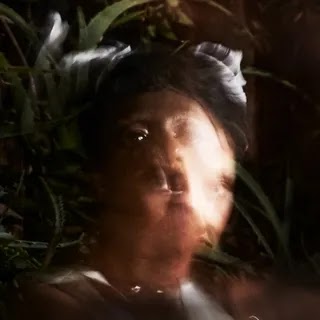On her first album in six years, Santigold reimagines the type of music that can comfort people in times of grief and stagnation.
Santigold has always had her ear towards the future, pioneering genrelessness before the era of streaming and social media collapsed its borders. On Spirituals, her most introspective and existential body of work to date, Santigold concocts her own version of African-American gospel music that sustained enslaved peoples through horrifying conditions. Using modern sounds of celestial pop, punk-rap, funk, electronica-reggae, and a smidge of hyperpop, she reimagines the type of music that can comfort people in times of grief and stagnation. It’s an experiment with transcendence as a vehicle for catharsis that, at times, gets muddled with attempts to ground its commentary within the music.
Ever since she embarked on her solo career, Santigold has functioned as a sort of griot bearing witness to racial and socioeconomic injustice. Dating back to her days as the frontwoman of the punk-rock band Stiffed, she was met with industry dismissal: “Black, female, punk artists would just never happen.” The usually mellow Santi White people saw in interviews channeled her frustrations into a confrontational punk persona. Whether it’s the insidiousness of the music industry on her breakthrough Santogold or consumerism on her third album 99¢, her lyrics speak truth to power and archive corruption. Her time spent as a child listening to artists like Fela Kuti, Burning Spear, Nina Simone, and Marvin Gaye shows up in “Ain’t Ready” and the Afro-Caribbean-influenced “No Paradise,” where Santigold the freedom fighter takes center stage. In the video for “Ain’t Ready,” she goes mad in an interrogation room as she returns the security camera’s invasive gaze. The siren-like intro serves as both a warning to adversaries and a wake-up call to comrades and herself.
To control the gaze is powerful; to constantly be on the lookout is exhausting. “My job as an artist is to feel and to absorb, you know, and it’s a lot. And it’s heavy,” she explains in a recent interview. On songs like the opening track “My Horror,” where she laments her dissociative daze through unsettlingly ethereal vocals, Santigold is haunted by her disposability as a Black woman in American society. She lingers in a moment of ego-death having recently couched her commentary in infectious pop beats and satire: On “Nothing,” she sings: “Am I free proving I’m better just so I’m not less … Don’t keep telling me I’m nothing/Say I mean something.”
With “Shake,” Santigold taps into a galvanizing cadence characteristic of the civil rights movement-era music. She fills the song with positive affirmations over a plucky bass instrumental—“I won’t buckle under pressure/I’m ’a be alright”—and body-stirring commands to pay homage to those who used music as a communal ritual to make it through “un-get-throughable” times. She just wants you to escape your body. And on the Boys Noize-produced “High Priestess,” Santigold is at her most Afrofuturistic: “Bow down, don’t freak out/In the presence of a queen/I guard the gates here/Guard the secrets while you wonder. ” She slips in and out of sing-rap, reminiscent of childhood playground chants, over metallic synths and punchy drum beats. In the tarot, the High Priestess card is associated with intuition, mystical knowledge, and the occult.
Santigold certainly acts as a spiritual guide here, steering us from angst toward a collective out-of-body release. As is the case when someone is pioneering an innovative soundscape, the journey sometimes faces some obstacles—Spirituals is peppered with clunky, too-literal lyrics that disrupt the spell cast by the music’s emotion. But by the end, we get a glimpse of the next phase of Santigold’s artistry—a project not bound by genre, form, physicality, or language.












0 comments:
Post a Comment